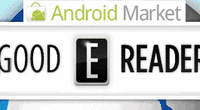
Just when it seems that libraries and publishers are finally coming to terms on how to make ebook lending feasible, another blow is struck to the libraries and patrons. In this round, it comes in the form of a 300% price increase from Random House on ebooks over the hardback editions of the same titles.
In an article for The Digital Shift, Michael Kelley outlines just a few specific examples of books whose hard cover editions cost libraries about $25, for example, yet whose digital editions through OverDrive cost in the range of $85. This pricing affects books of every genre as well, including children’s, middle grade, young adult, and non-fiction. Moreover, the titles that come with an extravagant and prohibitive price tag are still only available in the one-user-one-checkout model; these are not unlimited licensing prices.
Kelley’s sites one librarian’s reaction to the price increase, a professional who may be more on target than she realizes. Kathy Petlewski, of the Plymouth District Library in Plymouth, Michigan, responded to the notification of the price increases:
“The first thing that popped into my mind was that Random House must really hate libraries. Perhaps this isn’t true, but it will take a lot of convincing for me to believe otherwise. Do they not realize that libraries are hard hit by the economic downturn and that our budgets are shrinking. How do they think we can afford to build a decent collection of e-books when we’re spending over $100 per book? I am terribly disappointed by this latest turn of events.”
While it is doubtful that Random House hates libraries, there may actually be some negativity driving this decision. There has been a public outcry from library patrons and the American Library Association directed at the Big Six publishers over removing or blocking their digital titles from library lending, and what better way to win back the reading public by making your ebooks available for lending. The catch, of course, is the publisher can now shift the blame to the libraries for not purchasing the titles and expanding their lending catalogs. For their part, Random House explained that the pricing of the ebook now reflects the price of the audiobook edition of the same title; however, there was no justification for that pricing model, since ebooks don’t require the costs associated with utilizing a recording crew and voice talent.
There hasn’t been enough discussion about the role that the ongoing battle between Amazon and the Big Six plays in the problems arising with ebook lending. While lending has been a concern for the publishers in terms of trying to prevent piracy and protect the interests of the authors, there didn’t seem to be this much fighting over ebook lending until OverDrive became compatible with Kindle e-readers. Once that compatibility was put in place, publishers quickly began pulling their titles from ebook lending, suddenly citing these concerns that, oddly, were not all that troublesome before.
The full text of Random House’s statement can be found in the cited article.
Mercy Pilkington is a Senior Editor for Good e-Reader. She is also the CEO and founder of a hybrid publishing and consulting company.
